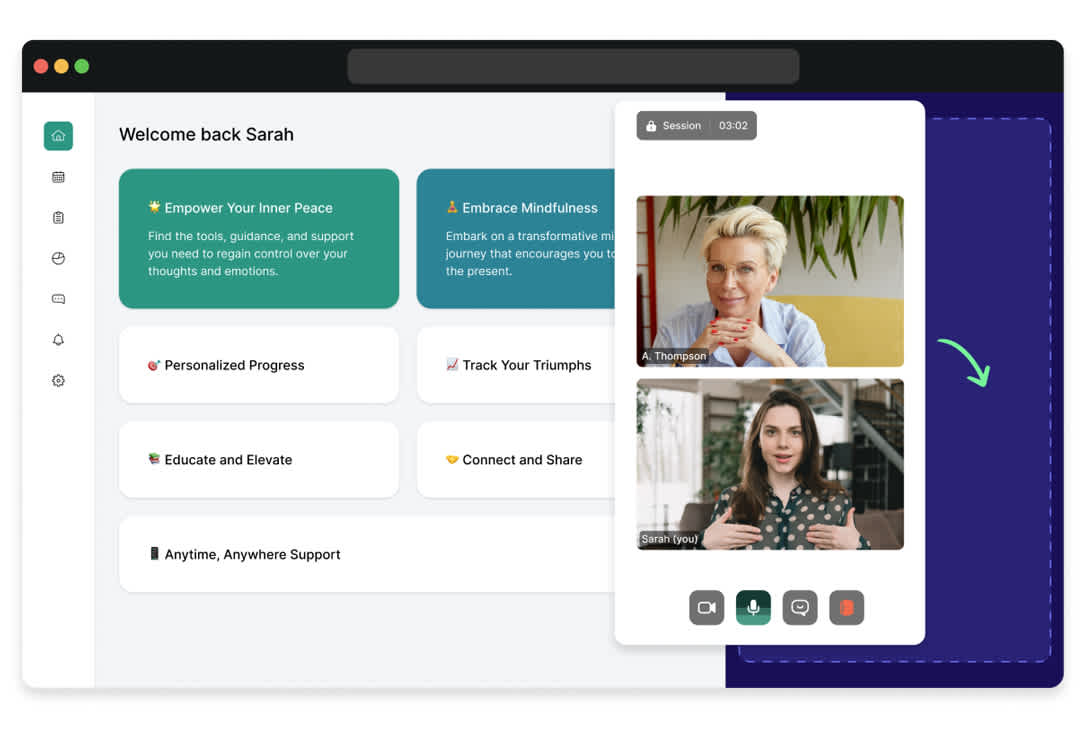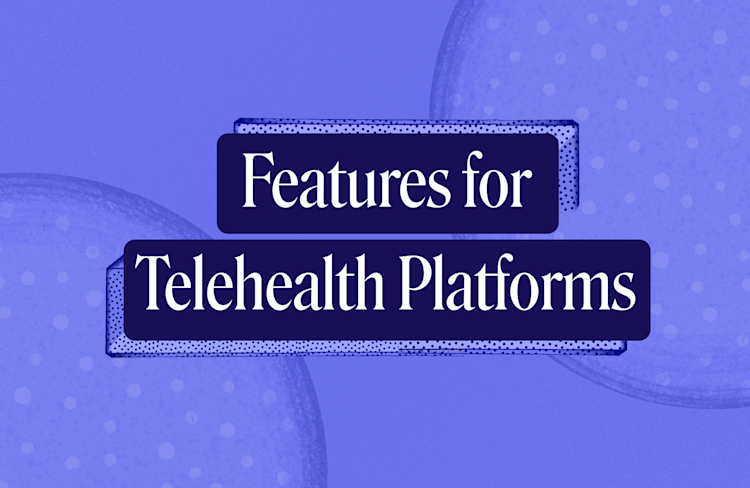Revolutionizing Healthcare: The Power of Video Call Technology in Transforming Medical Services
We're inspired by the idea that real-time video technology can transform and enhance the healthcare industry.

At Whereby, we're inspired by the idea that real-time video technology can transform and enhance everyday life. Living through the pandemic has shown us that video conferencing technology can enhance a variety of functions, including healthcare. In particular for physical and mental health, these technologies not only give patients more options, but empower them to have more agency over their own care, be more proactive about their own health, and ultimately achieve better outcomes in the long term.
With more than 1 in 8 people in the world living with a mental disorder (WHO fact sheet) and a significant rise in digital mental health and telehealth providers globally, there is a lot of opportunity for improvement and growth in improving care. We see the world much more readily embracing the importance of mental health and the therapies and services that help people invest in it. Demand for these services is growing steadily, leading to the development of thousands of platforms globally that aim to modernize and scale. We believe that real-time video call technology is central to this digital transformation of healthcare.
Creating a better patient experience
No matter where a patient is located, whether in a remote village or a busy city, medical specialists can now be accessed with just a click of a button. Patients experience increased flexibility in appointment times and a reduction in logistical challenges. A two-hour block of time previously required to visit a practitioner can now be replaced by immediately available 15-minute consultations.

Studies conducted since the pandemic have shown that utilizing virtual consultations can be more effective for certain types of care, particularly mental health care, with patients’ “subjective well-being” significantly improving when teletherapy and telecoaching are included as part of treatment (Modern Health).
The increase in convenience and flexibility has provided a more positive care experience for patients alongside significant time and cost savings for instance with reduced waiting times and decreased travel costs (Frontiers in Psychology). Several reports state that video consultations lead to high satisfaction among both patients and clinicians (BMJ).
By building virtual care options that complement traditional in-person visits, there is a higher likelihood that patients will proactively seek care. This approach also improves the speed, efficiency and quality of care they receive. Across hundreds of millions of patient interactions, the impact of these changes in behavior can have a significant impact on public health.
Across hundreds of millions of patient interactions, the impact of these changes in behavior can have a significant impact on public health.
Increasing clinician efficiency
While better patient care and experience will always be central to this transformation, the healthcare industry significantly benefits too. The world faces a shortfall in supply of quality care: hospitals, practitioner networks, and individual offices are stretched to capacity, leaving patients waiting months to receive procedures and attention.
Video consultations are a key ingredient in addressing this for the healthcare industry. Conducting a large percentage of consultations via video calls allows practitioners to triage early, address routine issues remotely, and augment more complex treatments with more frequent, but less time-intensive checkpoints. All of these enable them, and the industry at large, to more efficiently allocate time and resources to the times and places that need it most.

Many initial appointments don’t require a physical examination, and some types of care may never require a face-to-face consultation. The mental healthcare industry in particular is leaning into virtual communication with virtual therapy sessions being just as effective as in-person consultations (Frontiers).
While there will always be a place for physical care, virtual consultations will increasingly become more prevalent and accepted as part of a healthcare journey.
Overcoming technical hurdles
Connecting patients and practitioners across wide and variable geographies is not easy. It requires deep investments in secure, always-available, low-latency real-time video infrastructure that is costly to set up, optimize, and maintain.
And that's only half of the challenge: patients not only need to be able to access the service, even if they don't have the latest hardware or aren't confident with technology, they also need the experience to be intuitive, comfortable, and safe. Delivering ease of use to this extent is a time-consuming and highly-technical investment.
The significant rise in telehealth platforms and providers is bridging the gap between technology and clinicians, but even then, these platforms are aiming to implement not only video conferencing, but also scheduling, note taking, patient management and more, all in one place.
How can telehealth platforms enable high-quality, secure and reliable virtual care while also protecting their own resources and creating a user-friendly experience?
Powering the future of healthcare

At Whereby, we’re partnering with some of the world's most prominent telehealth platforms like Unobravo, Tebra and Accurx to deliver best-in-class private telehealth consultations that are deeply integrated within the platform interface. Through our embeddable and customizable video call solution, these platforms can offer consultations that are seamlessly integrated into their service and are fully compliant with relevant health and privacy legislation such as HIPAA.
By harnessing third-party technology like Whereby, telehealth providers can focus on providing the best possible care experiences, leaving the technical challenges involved in real-time audio and video communication to experts in the field. We’ve been fully-focused on building world-class video call technology for over 10 years, delivering developer-focused solutions to ensure ease of implementation and maintenance.
Leveraging Whereby’s developer APIs and SDK enable platforms to make use of tried and tested technology, while seamlessly integrating it into their user experience. There’s no need for their teams to become experts in video call technology or gain any specialized expertise; with just a few lines of code, developers can add advanced video call functionality right inside their platform, ready for customers to use.
Whereby partners with dozens of telehealth platforms and hundreds of therapists, and we’re excited to do our part to improve the health and wellbeing of people from all walks of life and across the globe. By focusing our efforts on healthcare we can build unique, tailored experiences that specifically result in better consultations and care.


